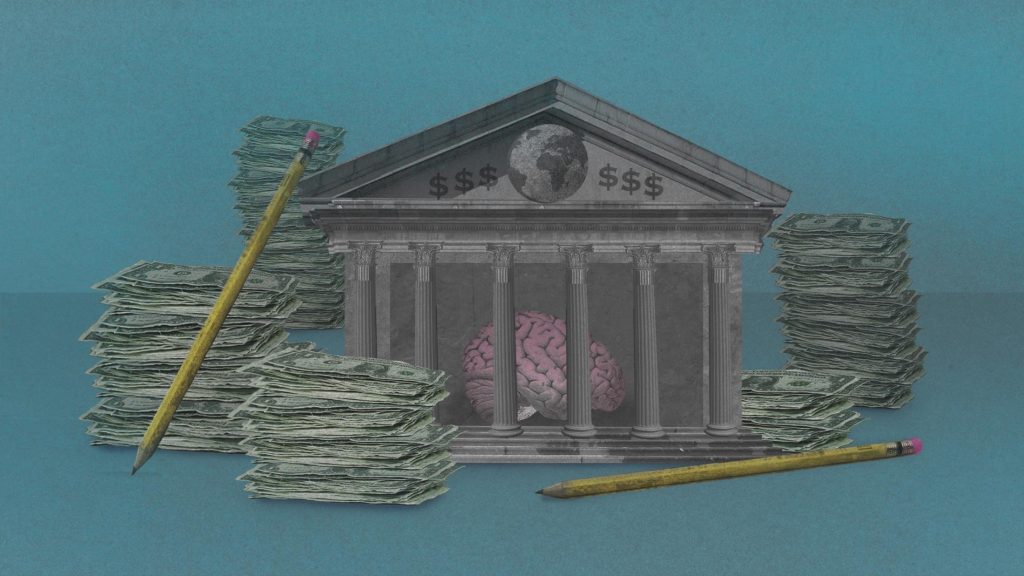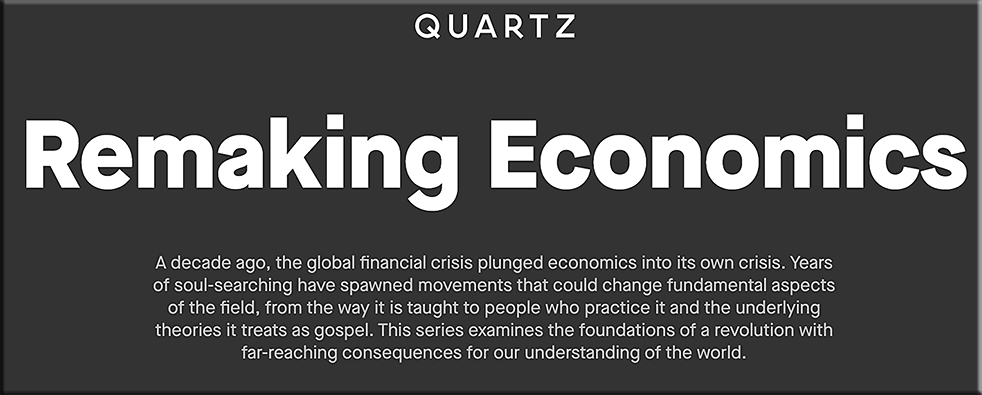The re-education of Economics 101 — from qz.com by Eshe Nelson
Excerpt:
CORE’s online textbook, The Economy, has rewritten the first year of an undergraduate economics degree. Its goal is to make economics a study of the real world and to embrace topics that are typically thought to be too complicated for the simplified equations and theories taught in most introductory classes. The creators of CORE, which stands for Curriculum Open access Resources in Economics, wanted to address the complaints of students who said they’d studied economics to understand issues like poverty, inequality, sustainability, and technological innovation but instead faced years of abstract economic theory and mathematical equations. These students didn’t want to become econometricians. They wanted to solve problems using economics to eradicate poverty, reduce inequality, measure the true impact of automation, and achieve sustainable growth.
Those complaints became too loud to ignore following the financial crisis a decade ago. When the global economy went into free fall, economists suffered a severe loss of credibility. They were vilified for not anticipating the financial crisis and further berated for their inability to offer credible ways to speed up the weak recovery, which dragged on almost to the present day. While most countries’ economies have now recovered, the reputation of the economics profession has not. Its failures not only enraged people who had lost their jobs and their livelihoods, it infuriated students all over the world as well. They felt they weren’t properly equipped to understand what had happened.
This is one of the reasons that some of today’s foremost problems—inequality, climate change, and financial crises—are either missing or oversimplified in economics teaching, they argue. Economists lost their way, they say. The desire for mathematical perfection and scientific precision was partly to blame. But so was a desire to influence public policy and cement the credibility of economics as a relatively new science. “The result of this education is that we, as the next generation of economic experts, are grossly underprepared to use effectively or responsibly the power we are given,” write the authors.
Also see:










